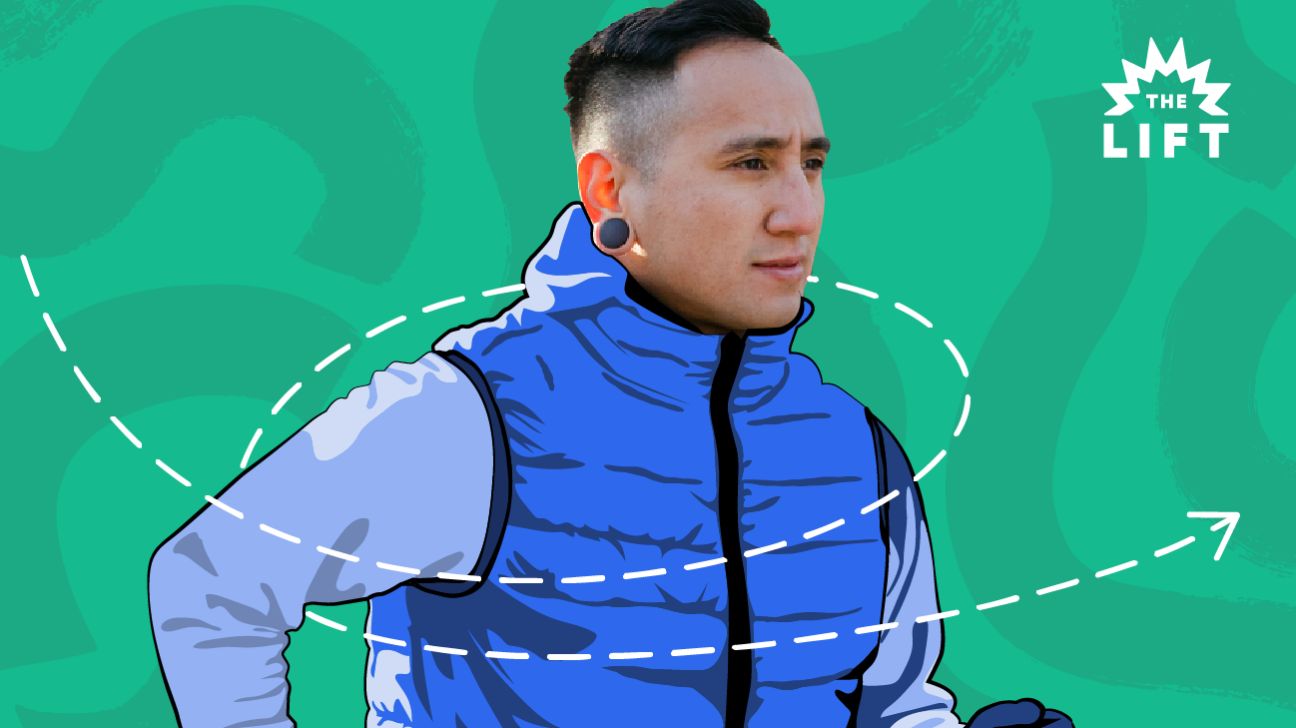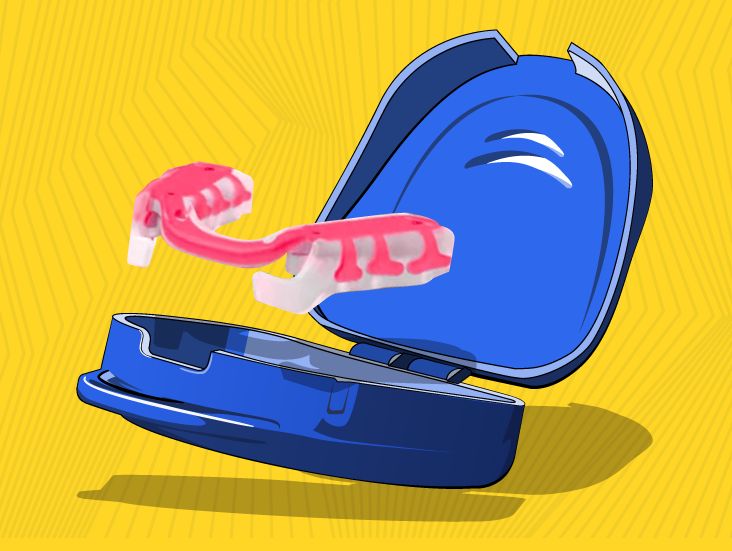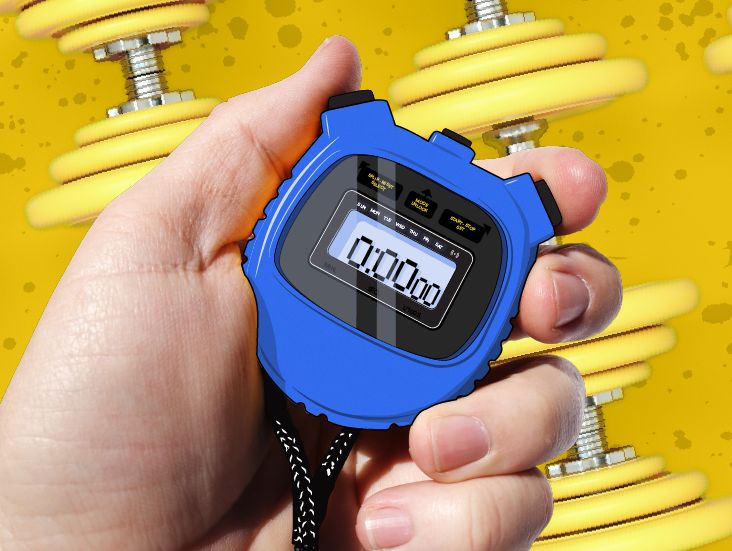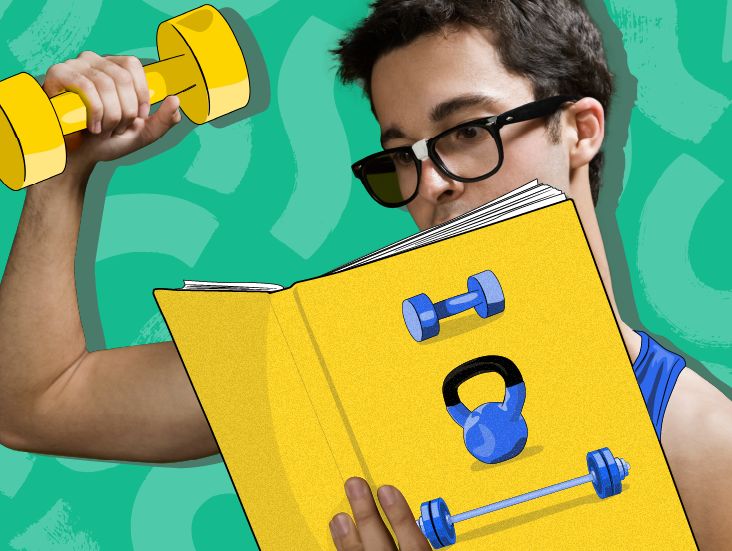
Fine if “Certified Lover Boy” isn’t’ your workout music of choice… but the babble-bubble-burble of an empty stomach?? That’s the background bop of choice for exercisers who do fasted cardio.
The act of working out on an empty stomach is sheathed in the same kind of Instagram fame as Tula face wash. But is there really any benefit to putting up with the distracting melody? Glad you asked.
Below, a sports nutritionist and certified personal trainer breaks down the meat and the myths of fasted cardio.
Fasted cardio is any sweat sesh that:
- gets your heart rate going
- occurs after a period without sustenance
Fasted cardio was originally popularized by fitness professional Bill Phillips with his 1999 book Body For Life, which recommended 20 minutes of intense cardio in the morning.
“Since it was popularized, many physique athletes and weekend warriors have used fasted cardio in lower intensity form as well,” says rugby expert and strength and conditioning coach, James de Lacey CSCS.
These days, fasted cardio refers to monostructural movements — running, rowing, biking, ellipticalling, ski urging — early in the morning, after 8+ hours without food.
However, some people who practice intermittent fasting might engage in a fasted cardio workout in the afternoon, depending on their eating schedules.
Let’s have a look at what’s been said about fasted cardio being a fat-burner and hold it up against the science.
The main claim: Working out on an empty stomach burns more fat
Favored by bodybuilders, as well as exercisers who want to lose weight, the big juicy claim from fans of fasted cardio is that it supports fat loss.
The hypothesis: When you train on an empty stomach, your body doesn’t have readily-available glycogen stores, which is what your body usually uses for energy. de Lacey explains, “In layman’s terms, that means there isn’t enough sugar for your body to use as fuel,” he says.
This means your body has to turn toward another source for energy: your fat stores.
“In theory, by using stored fat as an energy source, you’d burn more body fat in a fasted state than you would doing cardio in a fed state,” he adds, which could in theory help someone reach their body mass and body composition goals.
But this fat-burning hypothesis is not supported by rock-solid science
“Turns out, the evidence doesn’t support this hypothesis,” says de Lacey.
While one small, 2013 study found that participants who ran on the treadmill in a fasted state burned 20 percent more fat than breakfast-eating participants, most of the existing research concludes otherwise. (Plus, that study only had 12 participants).
One small research review of five studies on fasted cardio concluded that it “remains unclear whether training in fasted compared to fed states leads to greater weight loss.”
Another research review of 46 studies concluded that having a pre-workout snack or meal helps people work out harder and longer than not eating anything until after your workout.
de Lacey explains that that’s because while your body *might* use fat as energy, your body isn’t picky about where it gets its energy. That means it may actually break down your muscles for energy. Considering that muscles are metabolically active tissues — meaning they burn calories while you’re at rest — this is not ideal.
Sure! One upside is not having to deal with some of the discomfort that can come with working out on a full stomach.
Because you don’t have to budget in breakfast-time before hitting the gym, fasted cardio allows morning exercisers to sleep in a bit. It also allows people with sensitive stomachs to work out without worrying about indigestion, heartburn, upset stomach, or diarrhea!
There is one other benefit of fasted cardio, according to de Lacey. “Some research has suggested that fasted cardio may increase muscle glycogen,” he says.
“Why is this important for a physique athlete? Increased muscle glycogen means a more full muscle, giving a leaner, muscular look,” he explains. This is good news for people going after that specific stage #Lewk.
Beyond that, however, there are no other ways that fasted cardio outshines nonfasted cardio.
In fact, if improved performance or strength are your main goals, de Lacey says there’s little point in even going the fasted cardio route.
“You will limit the intensity and duration you will be able to train, which ultimately will hinder your cardiovascular gains,” he says. And you risk having the body break down muscle instead of fat, which will interfere with strength gains.
Depends. If you’re generally healthy, know your body’s hunger and pain cues, and have a long history of moving your body, then it’s pretty safe.
However, fasted cardio has a higher risk of inducing lightheadedness, dizziness, and dehydration compared to other forms of physical activity. For people who are still learning to listen to what they’re bodies are telling them, this could be dangerous.
After all, a slip or trip on the treadmill is no joke.
What should you eat after fasted cardio?
“If you do perform fasted cardio, eating a normal balanced meal as you would after any training session is sufficient,” says de Lacey. “A balance of protein, carbohydrates, and a small amount of fat will help to refuel your body and muscles.
“Because you are in a glycogen depleted state, an emphasis on carbohydrates during this time is vitally important for recovery,” he says.
Fasted cardio may have a reputation of being one of the best ways to drop fat, but experts say it’s ultimately not an earned reputation.
If you want to reduce your body fat percentage, a more beneficial and effective plan might involve lifting heavier weights, sleeping longer, eating more protein, and cutting down on simple carbohydrates.
“Maximizing fat loss is also about retaining as much muscle mass as possible as that is what will give you that lean, muscular, and toned look,” says de Lacey. “When fat loss dieting and exercising is performed without prioritizing the retention of muscle mass, that’s when individuals start to lose muscle mass.”
In a nutshell, running on empty isn’t what it’s cracked up to be. In fact, rather than being beneficial, fasted cardio can interfere with both your workout tunes and your workout goals.
Gabrielle Kassel (she/her) is a queer sex educator and wellness journalist who is committed to helping people feel the best they can in their bodies. In addition to Healthline, her work has appeared in publications such as Shape, Cosmopolitan, Well+Good, Health, Self, Women’s Health, Greatist, and more! In her free time, Gabrielle can be found coaching CrossFit, reviewing pleasure products, hiking with her border collie, or recording episodes of the podcast she co-hosts called Bad In Bed. Follow her on Instagram @Gabriellekassel.





